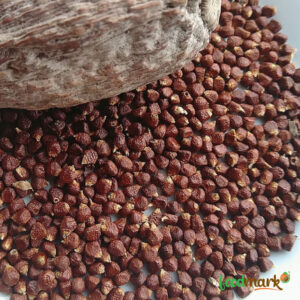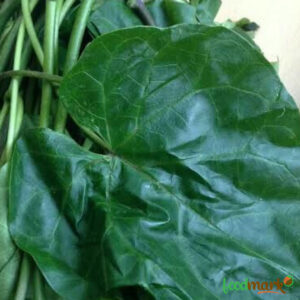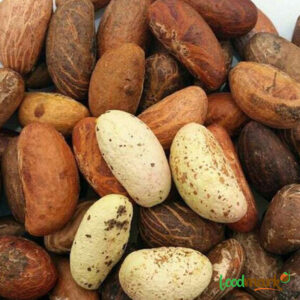Kaun, also known as potash or kanwa, is a traditional African ingredient that is commonly used as a cooking additive. It is made from the ashes of plant materials, such as cocoa pods, palm fronds, and plantain leaves, which are burned to create a fine, powdery ash. This ash is then mixed with water to create a solution that is used in cooking. Here are some key points about kaun:
- Alkaline Properties: Kaun has alkaline properties, which means it can help to neutralize acidity in foods. It is often used in cooking to reduce the acidity of certain ingredients, such as tomatoes.
- Leavening Agent: In some traditional recipes, kaun is used as a leavening agent to help dough rise. It can be added to doughs for bread or pastries to improve their texture and rise.
- Flavor Enhancer: Kaun is known to enhance the flavors of certain foods, giving them a unique and savory taste. It is often used in soups, stews, and sauces to add depth and complexity to the flavor profile.
- Preservative: Kaun is believed to have preservative properties, which can help to prolong the shelf life of certain foods. It is often used in traditional food preservation methods to prevent spoilage.
- Nutritional Content: Kaun is not a significant source of nutrients, but it does contain small amounts of minerals such as calcium, magnesium, and potassium. However, the amounts present in kaun are generally low and not a major source of these nutrients in the diet.
- Health Considerations: While kaun is generally safe for consumption in small amounts, excessive intake can lead to health problems. It is high in sodium, so individuals on a low-sodium diet should use kaun sparingly. Additionally, some sources of kaun may be contaminated with harmful substances, so it is important to source it from reputable sources.
- Cultural Significance: Kaun is an important ingredient in many African cuisines and is used in traditional dishes across the continent. It is valued for its unique flavor and culinary properties.
Overall, kaun is a versatile ingredient that is valued for its culinary properties and cultural significance. However, it should be used in moderation and sourced from reputable suppliers to ensure safety and quality.
















There are no reviews yet.